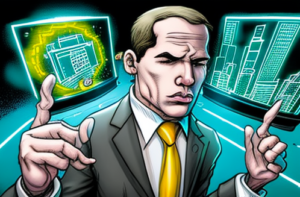The digital asset industry took some hard hits with the depegging of Tera Luna, liquidation of Celsius and Three Arrows, now the latest unprecedented liquidation on the block is the FTX collapse. CeFi exchanges – crypto exchanges that are by a central party, have gotten a bad reputation lately and for a good reason. There are a couple of obvious culprits that caused the downturn in the market, of which the most important is the lack of regulation for the digital asset industry. It is prohibiting institutional investors from entering the market. Investors are waiting on the sidelines for a more stable environment that is transparent and, most of all, regulated.
In these uncertain times, it is important to ensure that you have the correct management team with appropriate experience in the digital asset industry, who are proactive and understand the unique challenges. Risk management comes from the top. Appointing competent independent digital asset directors is the first step to conquering the hurdles of such a new asset class and managing the risk to an acceptable level.
We’ve chosen to impart insights gained from both bear and bull markets, providing independent directors with considerations to mitigate risks during market downturns.

1.Duties of directors
Directors have the duties of skill, care and diligence. When looking for a director in the digital asset industry it’s important to appoint an individual that has sufficient experience in the jurisdiction where the fund is registered, to apply the local regulation as well as understand the industry. Directors in the traditional financial industry, more often than not, do not have the depth of knowledge about different blockchains, custody solutions, smart contracts and the associated risks, just to name a few. When appointing a director, ensure that they have a portfolio of crypto clients and a sufficient understanding of the technology that digital assets are built on. What applies for a traditional fund, might not be applicable or appropriate for a crypto fund. Appointing a crypto native director effectively ensures that the judgment exercised is properly informed and their supervision of the executive management and service providers are effective.
Directors have fiduciary duties to always act in good faith and in the best interests of the company using the powers granted to them for their proper purpose. When we look at what happened with FTX, the trust put into Sam Bankman-Fried (SBF), who painted the picture of a genius eccentric, advocate for digital asset regulation and policy insight that will take the asset class to space, we have learned a couple of humbling lessons. FTX needed to bail out Alameda after the collapse of Terra-Luna, by using their own FTT tokens. Essentially “printing money” to provide collateral. The problem is the market value of FTT was based on the traded value and was not backed by any assets, which made the collateral worthless to the point where FTX couldn’t back the value. The hole in FTX’s books of $6bn was exposed.
SBF was the founder and CEO of FTX, essentially running the company as he pleased without a board of directors guiding him. A board was appointed for FTX US Derivatives, but the bigger group was dictated by SBF himself, giving him the freedom to circumvent the governance handle that a board of directors would impose. When looking at a digital asset company or fund its important to ensure that a proper governance structure is enforced, of which a board of directors is of the utmost importance. Directors have a fiduciary duty to act in the investors’ best interest, not in a personal interest or for collateral or some other improper purpose. FTX desperately needed a board of directors to guide SBF through the financial hurdles and on the correct path.
2. Independence
Due to the unregulated nature of the crypto industry, we have seen companies being run by the founders, with a lack of independent management appointed, allowing conflicts of interest to prevail in the crypto industry due to the venture capital and start up nature of the projects. A non-executive director is, typically, independent of the company, any subsidiaries and any other members of the board. Independent non-executive directors provide a high-level supervisory role by monitoring the activities of the executive directors/CEO and contributing to the development of strategy.
As an independent non-executive director, we take a step back, try to see the bigger picture, act in accordance with the jurisdictional regulation, for the future of the company and the benefit of investors. A director worth their salt will not have approved the transfer of the FTT tokens to Alameida, rendering FTX illiquid, as that would not be in the best interest of the company, the investors in FTX or the clients of the exchange. Assets deposited by the client to the FTX platform should have been segregated and custodied by FTX as collateral for the client’s right to redeem. We ensure that the conflict of interest presented by the management of the company is successfully managed to benefit the stakeholders of the company.
Stay tuned for part 2 of this article, that focuses on crypto specific considerations and market research. If you would like to discuss your business with Hash Directorships, feel free to reach out to any of our directors.


